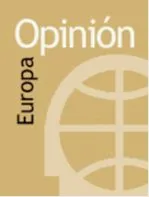A Place in Europe: Ukraine Longing for the EU

Valeriya Shamray
Europe Programme Assistant
Barcelona, 11 December 2009 / Opinión CIDOB, n.º 53
‘Deadlock’ seems to be the right word to describe current EU–Ukraine relations. Since the heady days of the Orange Revolution in 2004 Ukraine has been trying to prove to EU policymakers that it deserves belonging to the European club. For its part, the EU appears to be responding with the policies towards its Eastern neighbours that do not meet the expectations of the countries with clear EU aspirations including Ukraine, Moldova and Georgia, among which Ukraine occupies the leading position.
The 13th EU-Ukraine Summit that took place in Kyiv on the 4th of December 2009 held no surprises. The EU reiterated demands for constitutional and economic reforms as well as closer cooperation in the fields of energy security, climate change, economic and financial crisis. Ukraine – for its part - is still waiting for the EU to finally decide on Ukraine’s membership perspective. Ukrainian leaders must play the mind-readers and deploy their best talent trying to guess what EU leaders have on their minds when it comes to letting Ukraine join the club. During the summit, Benita Ferrero Waldner, former European Commissioner for External Relations and European Neighborhood Policy, stated that Ukraine’s further integration into the EU depends, on the one hand, on the progress in bilateral political dialogue between the EU and Ukraine as well as the implementation of the reforms in Ukraine. On the other hand, Ukraine’s bid to join the EU also depends on the consensus of the current 27 EU member states. Meanwhile, she said, “Ukraine has to accept what we offer it”.
But is this offer in accordance with the democratization and stabilization benefits that the EU claims its approach to the relations with the neighbors implies? Will it ensure the transformative power that has been witnessed in the cases of Central and Southern European countries? Ukraine’s case shows clearly that the prospect – although distant - of integration in the EU might be a driving force for triggering substantial reforms. Following the collapse of the Soviet Union, the newly independent states of Eastern Europe experienced difficult times. While the average Ukrainians, Moldovans or Georgians acquired the desired liberties and possibility to build up their states, the legacies of Soviet governance and lack of democratic mechanisms undermined the chances of the newly independent states to create the conditions for a democratic state building process. Ukraine was no exception. However, even Kuchma’s corrupt, pro-Russian, and undemocratic administration, developed an EU integration strategy in 2000. That strategy aimed to make Ukraine EU-ready by 2007. Although declarative rather than practical, this document should have made the EU more conscious of the place Ukraine wants to occupy on the map of Europe.
EU policy toward Ukraine has run hot and cold over the last decade. Ukraine’s democratic breakthrough occurred in 2004 when protests around the country overturned the fraudulently elected president and brought a pro-EU leadership to power. After supporting the Orange Revolution, the EU threw cold water at the new leaders. Instead of reinforcing its commitment to Ukraine’s membership – a tactic the EU used in 1991 in relations with other Central and Eastern European countries – the EU opted for business as usual within the framework of the European Neighborhood Policy (ENP), which basically brought countries such as Syria, Libya and Belarus into the same policy pot as Ukraine. The carrot offered by the EU in the form of closer economic integration and visa facilitation – although welcomed - disappointed the large pro-European sectors of Ukrainian society, be them elites or grass root movements.
The EU continues to backpedal on Ukraine’s accession to the Union. EU leaders continually remind Ukraine about its poor implementation of the ENP Action Plan. Internal political struggles between the President and the Prime Minister, two rounds of parliamentary elections, the change of two Prime Ministers, and the gas wars with Russia have not helped Ukraine’s image either. Ukraine has not been a model reformer, but neither had Bulgaria or Romania. Democratic traditions have started to take hold in Ukraine – fragile traditions which the EU could support instead of downplay. While EU claims that the membership perspective is crucial for stabilization and transformations in such countries as Serbia and Kosovo (the latter of which is not even recognized by all the EU member states) it remains conspicuously silent about the Ukraine’s integration prospects.
The disappointing tendency to keep the issue of the Ukraine’s membership perspective unresolved remains in the current EU-Ukraine relations. The recent ENP initiative, the Eastern Partnership, does not offer much more than the ENP. It merely standardizes the post-Soviet space, equaling Ukraine, Georgia and Moldova with Azerbaijan, Armenia or Belarus for whom deepening relations with the EU does not even appear on the foreign policy agenda. While Sweden and Poland - traditional supporters of the Ukraine’s EU membership - perceive Eastern Partnership as a step towards EU accession, Germany, France and Italy value good relations with Russia and prefer not to irritate their main energy supplier with attempts to unify an approach towards Ukraine, not to mention offering clear membership promises.
The achievement of long-aspired EU aims to ensure stability and prosperity in Eastern Europe now heavily depends on whether the EU and Ukraine will travel along the path of transformation and reform in the region together. Notwithstanding the enlargement fatigue prevailing in the Union’s foreign policy, it is crucial that Ukraine has realistic hopes of joining the EU once it complies with the Copenhagen criteria. It is high time for the EU to decide whether Ukrainian membership is to be or not to be.
Valeriya Shamray
Europe Programme Assistant